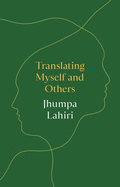
The art of literary translation is "central to the production of literature, not an accessory to it," writes Jhumpa Lahiri (Whereabouts) in Translating Myself and Others. Talk about linguistically precocious: when a teacher forced five-year-old Lahiri to write "Dear Mom" in her homemade Mother's Day card, rather than the Bengali "Ma," she had already "intuited the central and complex role that translation was to play" in her writing. In 2015, she took her writing in a seemingly unexpected direction: She moved to Rome to master Italian and "to plunge into a new idiom, to encounter new people and a new culture." These essays show that this wasn't as abrupt a U-turn as one might think, and demonstrate the depths of her love for her adopted language.
Frequent references to Ovid's Metamorphoses appear in these pieces, and with good reason. All translation, Lahiri writes, is a form of metamorphosis, "a radical, painful, and miraculous transformation in which specific traits and elements are shed and others newly obtained." Among these works are essays that accompany her translations of novels by Italian writer Domenico Starnone, critical appraisals of the role of translation in works by Antonio Gramsci and Italo Calvino and personal essays on the pleasures and challenges of translation. The book ends with two essays she wrote in Italian. "To translate is to walk down numerous scary corridors, to grope in the dark," Lahiri writes. Readers will have a newfound appreciation of the translator's ability to illuminate. --Michael Magras, freelance book reviewer

